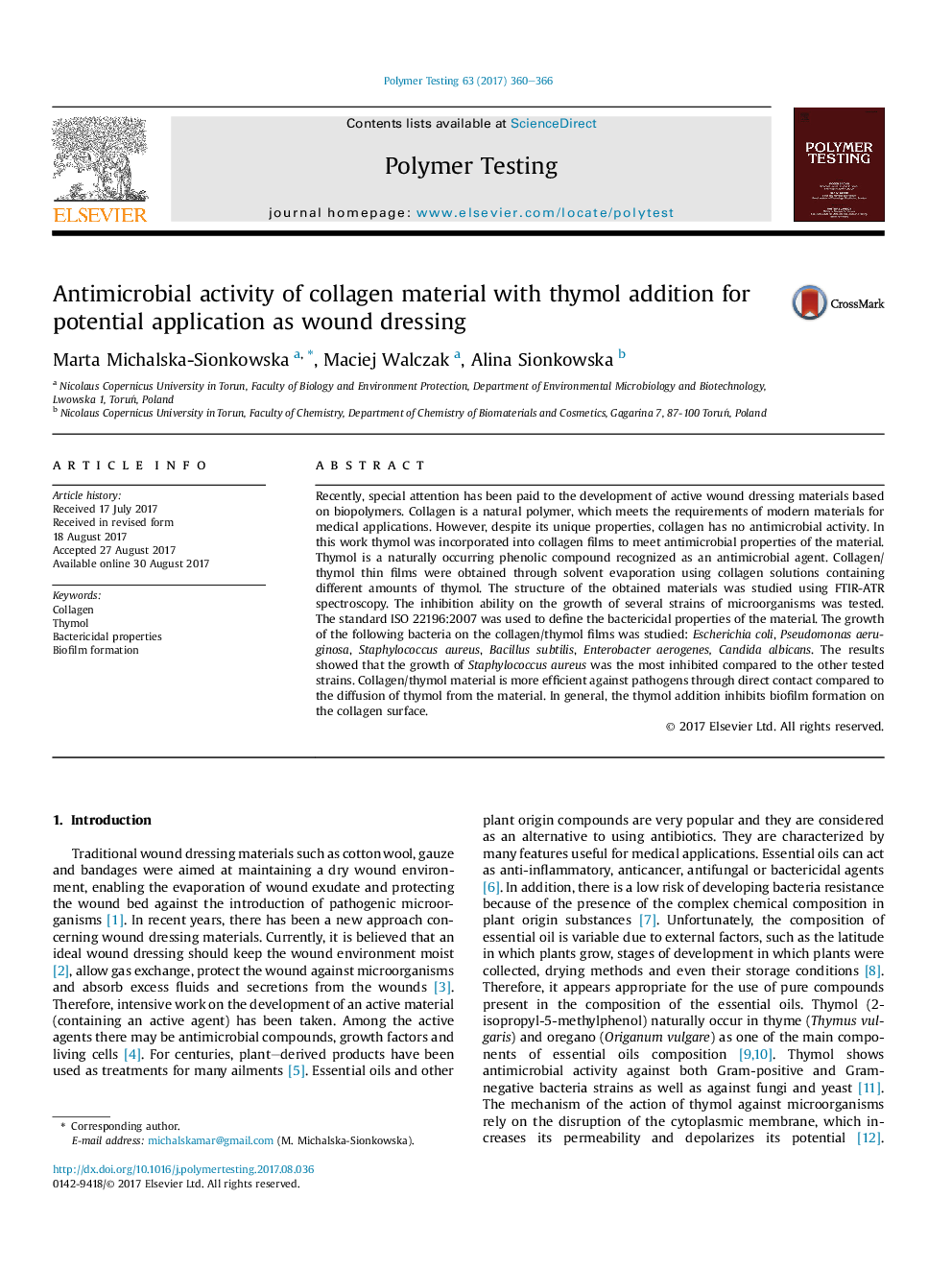| Article ID | Journal | Published Year | Pages | File Type |
|---|---|---|---|---|
| 5205269 | Polymer Testing | 2017 | 7 Pages |
Abstract
Recently, special attention has been paid to the development of active wound dressing materials based on biopolymers. Collagen is a natural polymer, which meets the requirements of modern materials for medical applications. However, despite its unique properties, collagen has no antimicrobial activity. In this work thymol was incorporated into collagen films to meet antimicrobial properties of the material. Thymol is a naturally occurring phenolic compound recognized as an antimicrobial agent. Collagen/thymol thin films were obtained through solvent evaporation using collagen solutions containing different amounts of thymol. The structure of the obtained materials was studied using FTIR-ATR spectroscopy. The inhibition ability on the growth of several strains of microorganisms was tested. The standard ISO 22196:2007 was used to define the bactericidal properties of the material. The growth of the following bacteria on the collagen/thymol films was studied: Escherichia coli, Pseudomonas aeruginosa, Staphylococcus aureus, Bacillus subtilis, Enterobacter aerogenes, Candida albicans. The results showed that the growth of Staphylococcus aureus was the most inhibited compared to the other tested strains. Collagen/thymol material is more efficient against pathogens through direct contact compared to the diffusion of thymol from the material. In general, the thymol addition inhibits biofilm formation on the collagen surface.
Related Topics
Physical Sciences and Engineering
Chemistry
Organic Chemistry
Authors
Marta Michalska-Sionkowska, Maciej Walczak, Alina Sionkowska,
